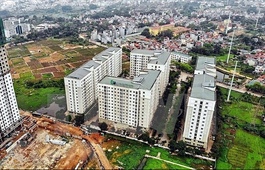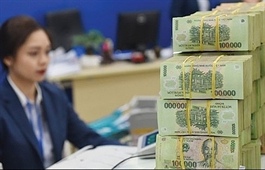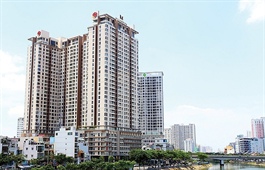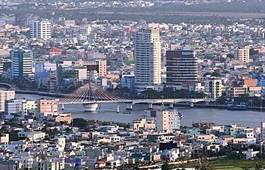"Semi-transparent" ranking helps Vietnamese real estate attract more foreign investment
"Semi-transparent" ranking helps Vietnamese real estate attract more foreign investment
Bumped up a notch from “non-transparent” to “semi-transparent”, the Vietnamese real estate market will draw more foreign investment, according to JLL.
Under its Global Real Estate Transparency Index (GRETI) 2020 released on July 13, JLL said that progress in Vietnam’s main cities of Hanoi and Ho Chi Minh City leading to the 56th ranking globally has pushed the country into the higher semi-transparent tier for the first time ever.
According to Stephen Wyatt, country head of JLL Vietnam, it was no surprise that Vietnam has moved from "non-transparent" to "semi-transparent" in the latest transparency index.
“Over the past 10 years, Vietnam has become a top destination for manufacturing in Southeast Asia and attracted significant foreign investment. Many multinational investors are entering Vietnam and more investment capital arriving into the country is a fact,” Wyatt told VIR.
He took the case of the KKR consortium that includes Temasek as an example, which has recently completed the acquisition of an investment in Vinhomes JCC with the value of $650 million.
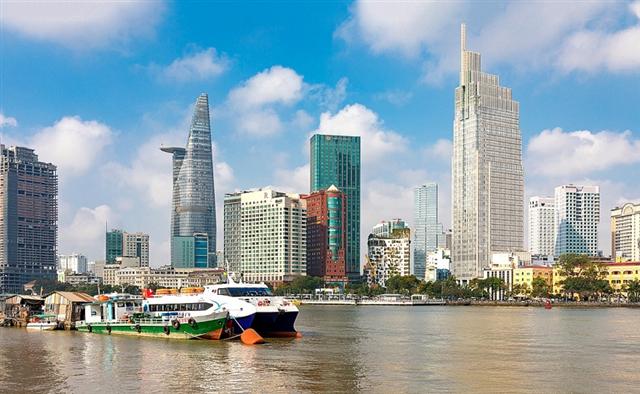
Hanoi and Ho Chi Minh City have pushed the country into a higher tier for the first time ever on the JLL Global Real Estate Transparency Index (GRETI) 2020 (Photo Le Toan)
|
In both the Asia-Pacific and outside of the region, JLL’s research concludes that sustainability commitments have become the biggest single driver of real estate transparency globally since 2018.
An increased focus on corporate social responsibility and acknowledgement of the need to create sustainable buildings bring environment, social, and governance (ESG) considerations into the mainstream.
Additionally, green building certification systems and energy efficiency standards are widespread in the region’s most transparent markets and the most improved national real estate sectors.
Pressure exists from investors, businesses, and consumers to further improve real estate transparency to compete with other asset classes and meet heightened expectations about the industry’s role in providing a sustainable and resilient built environment in the age of COVID-19.
Furthermore, innovative new property technology (proptech) is changing how real estate data is gathered and analysed and influencing industry transparency at a regulatory level.
Another key driver of transparency is the volume of real estate market data now available due to the growing adoption of proptech platforms, digital tools and big data techniques.
Although real estate markets have historically faced challenges when implementing new technology, the COVID-19 pandemic is leading to an acceleration in new types of non-standard and high-frequency data – especially relating to health, mobility, and space usage – being collected and disseminated in near-real-time.
Chris Fossick, CEO, JLL Southeast Asia, said that as the adoption of proptech and sustainability commitments continue to gather steam, greater transparency gains will be driven by both an evolving regulatory landscape and the collective actions by national real estate industries.
“The country’s strong economic prospects have drawn significant interest from both occupiers and investors, and that has led to increased competition and service offering from property management companies. While investment into commercial real estate has inevitably paused during the pandemic, the overarching trend toward rising allocations to this asset class will continue. As investors look to allocate more capital into real estate in this region, transparency becomes even more important,” he said.
With the outbreak of COVID-19, it will become even more crucial for the real estate industry to work collaboratively with local governments to achieve greater transparency and meet the changing expectations of investors as their appetites shift in accordance to the investment outlook over the next 12 to 18 months.
Emerging markets have once again shown the greatest advancement in the Index, with six Asia-Pacific markets – Mainland China (32nd), Thailand (33rd), India (34th), Indonesia (40th), Philippines (44th), and Vietnam (56th) – among the top 10 biggest improvers globally. Progress in many of Vietnam main cities, Hanoi and Ho Chi Minh City, has pushed the country into the higher "semi-transparent" tier. Singapore (14th) sits near the cusp of the "highly transparent" tier as it has risen one spot from number 15 in 2018.
The 2020 Index is launched at a time of massive economic and societal disruptions where the need for transparent processes, accurate and timely data, and high ethical standards are in closer focus. The backdrop of COVID-19 is also ensuring that transparency within the Asia-Pacific’s real estate legal and regulatory systems is more important than ever to global investors as they look to deploy approximately $40 billion in dry powder capital into the region.
JLL and LaSalle have been tracking real estate transparency and championing higher standards since 1999. This 11th edition of the Global Real Estate Transparency Index (GRETI) covers 99 countries and territories, and 163 city regions. This latest survey has been extended to quantify 210 separate elements of transparency, with additional coverage on sustainability and resilience, health and wellness, proptech, and alternatives sectors.



